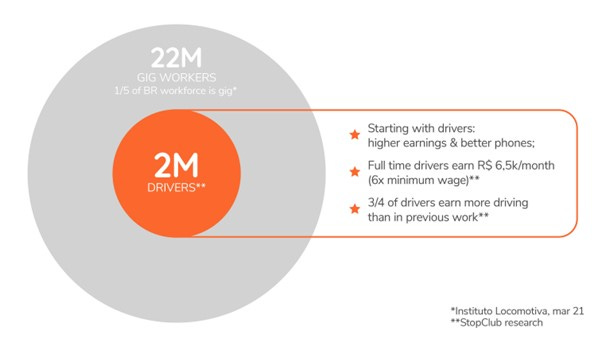Luckily, I continue to receive a good amount of interesting early stage companies to share here.
For those who are new, this series is dedicated to very early stage startups that are under the radar – and have a good story to tell. I send it out every other Wednesday - and it is seperate from my traditional weekly newsletter. The basic criteria is a company that is not on the spotlight and is NOT actively raising proceeds. There is also no bias – apart from the fact that I like the story. I am not an investor or get any financial compensation to promote startups featured. This is intended for informational purposes only, using my solid base of subscribers to share intel of good people doing cool things.
Since launch, featured startups in aggregate were connected 51 times, to 27 different investors/strategic partners globally.
Finally, if you are a founder and want to be considered for this series - it is very simple:
Please fill out a one-pager, in English, about your company using the topics and themes outlined in the posts.
Reply to this e-mail with your one-pager attached.
I will review and reach out if I need more information.
It will be posted if I believe the startup fills the profile and audience of this newsletter.
Good Luck!!!!!!
Follow me on LinkedIn , Instagram or Twitter for daily updates!
Opinions expressed here are solely my own and does not represent those of people, institutions, organizations that I may or may not be associated with in any capacity, unless explicitly stated.
StopClub is a social fintech for gig workers. The community centered app offers collaborative tools that help gig workers improve performance, gain access to financial products and have a safer work environment.
Context:
Platforms like Uber, 99 and iFood revolutionized the way we consume products and services and give opportunities to millions of people around the world to find jobs and provide for their families. The people providing these services are called gig workers.
It created a new kind of labor relationship that is flexible, on-demand and, technically, temporary. But in Brazil the reality is different. The majority of drivers and delivery workers on these platforms earn more or the same as they did in previous jobs. Add to that the flexibility of deciding when to work and the fact that they don't have a boss - it's understandable why many gig workers stick.
Some data about the drivers working for Uber, 99 and other platforms: the majority are within the range of 35 to 55 years old; 95% are men; approximately 50% rent vehicles; São Paulo and Rio de Janeiro are on top of the ranking as most important cities globally for Uber.
Market size:
Latest surveys estimate that over 22 million people are in the gig economy with 10% of them being drivers.
Problem:
It's very easy to become a gig worker but the routine is challenging. For example, within a week after registration one can start driving for Uber, but there is no onboarding about how you should work. Should you stay in one region of the city? Should you accept all rides that are being offered? There is no guidance and also there are no coworkers to help and exchange experience.
Drivers also struggle with lack of safety because they never know who will enter their car. This problem goes beyond crime because if there is a discussion between him and the passenger, they can be banned from the platform and lose their income.
Another crucial pain point of this population is the lack of access to financial services. The typical gig worker is someone that has a bad credit score due to events that happened before he/she became a gig worker. Banks have difficulty to access and evaluate data about gig workers income, therefore, the offer of financial services to them is very scarce.
Product:
StopClub was created to address the main challenges gig workers face everyday. Starting with drivers, the app offers a set of collaborative tools that helps them work safer, achieve better earnings and stay connected to friends and family.
The Radar allows users to befriend other users and share their location in real time. They use this feature for safety and social purposes like asking for a helping hand.
The Secret Camera feature transforms the user phone into a security camera to record their routine while operating on the background of any other app. This helps users challenge arguments and accusations made from passengers as well as inhibit criminal activities.
Users can also send audio messages to friends with the walkie-talkie feature and participate in audio rooms to share experience and stay in touch with the community.
All these features are free to use and were envisioned to build a respected brand with a large user base and become a necessary working tool.
After achieving success on that first phase, the goal switched to monetize the user base by offering the products and services they need. The app has a marketplace in partnership with companies that offer car insurance, health insurance, consórcio (a genre of car financing), and others.
The marketplace offers exclusive deals only found on StopClub. These partnerships operate with recurring comissionament or sponsorship.
Financial solutions:
Around 70% of payments to app drivers by passengers are made through PIX or cash. StopClub makes transactions quicker and safer, transforming the user phone into a POS to receive PIX. This channels users' income to StopClub digital account where funds can be spent using a prepaid credit card.
On the other side, connection with gig platforms allow StopClub to receive workers' earnings data around different platforms they work to offer financial intelligence to users and in return StopClub access vital information to offer tailored solutions such as credit and insurance.
By having both users' total income and expenses on the prepaid card StopClub can show to users their net income at the end of the day.
Upshot:
StopClub has successfully built tools that help gig workers everyday, creating engaged communities and a big and trustworthy channel. In 2023 user growth is 143%, reaching 202k monthly active users using their platform over more than 1.000 cities in Brazil and already with presence in more than 40 countries.
Founders:
Investors:
Canary, Redpoint eventures, among others.







